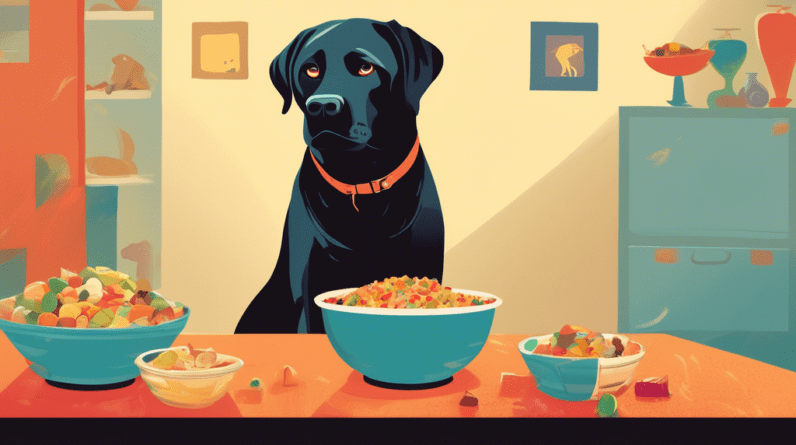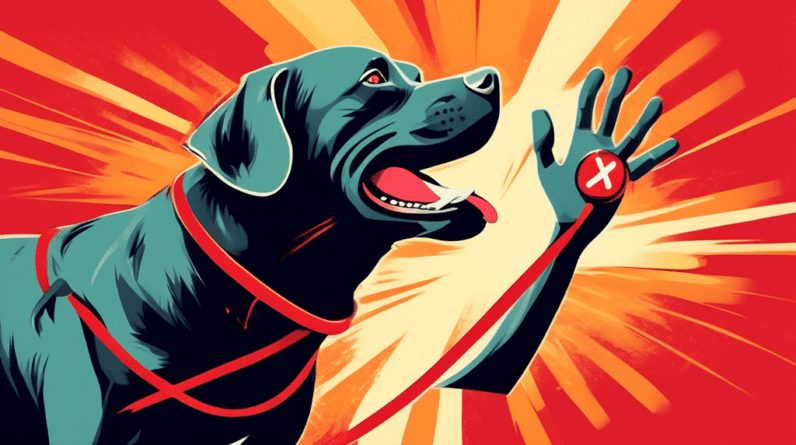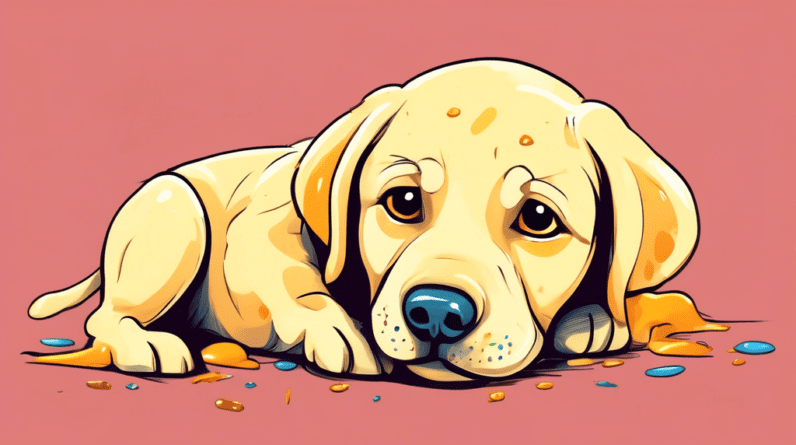
Why Do Labradors Eat Everything in Sight?
Unraveling the Labrador’s Insatiable Appetite
Labrador Retrievers, beloved for their friendly nature and boundless energy, are notorious for their voracious appetites. From stray crumbs to discarded toys, it seems nothing is safe from a Lab’s curious mouth. But what drives this seemingly insatiable hunger? Is it simply a matter of breed disposition, or are there deeper biological and evolutionary factors at play?
A History of Food-Focused Breeding
To understand the Labrador’s eating habits, we must delve into their history. Originally bred on the rugged coast of Newfoundland, Canada, these dogs were prized by fishermen for their retrieving skills, particularly their ability to fetch nets and fish from the icy Atlantic waters. This demanding work required a robust build and an even stronger constitution, traits that were selectively bred over generations.
Food played a crucial role in this selective breeding process. Fishermen, often working long hours in harsh conditions, couldn’t afford to be picky about their canine companions’ diets. Labradors were expected to thrive on whatever scraps were available, whether it be fish heads, offal, or leftover porridge. This constant exposure to a diverse and often unpredictable food supply ingrained in the breed a remarkable adaptability and a tendency to scavenge, traits that persist in their modern-day descendants.
The Biology Behind the Behavior
Beyond historical factors, there are biological reasons why Labradors seem perpetually hungry. Like all dogs, Labs possess a highly developed olfactory system, granting them a sense of smell up to 100,000 times more acute than our own. This heightened sense allows them to detect even the faintest whiff of food, turning everyday environments into aromatic buffets that are hard to resist.
Furthermore, research suggests that Labradors may have a genetic predisposition to food-motivated behavior. Studies have identified specific gene variations in the breed that are associated with increased appetite and a tendency to overeat. These genes, involved in regulating satiety and energy balance, might contribute to the insatiable hunger that many Labrador owners observe.
Addressing Your Labrador’s Eating Habits
While a healthy appetite is normal for Labradors, their propensity to eat anything and everything can pose health risks. Here are some strategies to manage your Lab’s eating habits and ensure they maintain a healthy weight:
1. Establish a Consistent Feeding Schedule
Free-feeding, or leaving food out all day, can exacerbate a Labrador’s tendency to overeat. Instead, establish a regular feeding schedule with two measured meals per day, ensuring your Lab knows when to expect their next meal.
2. Choose High-Quality Dog Food
Opt for nutrient-rich, high-quality dog food formulated for Labrador Retrievers. These formulas often contain ingredients that promote satiety, helping your Lab feel fuller for longer and reducing their urge to scavenge.
3. Provide Plenty of Exercise and Mental Stimulation
A bored Labrador is more likely to indulge in destructive behaviors, including raiding the trash or gobbling down anything they can find. Ensure your Lab gets plenty of exercise, both physical and mental, to keep them entertained and tire them out.
4. Train Basic Obedience Commands
Training your Labrador basic obedience commands, such as leave it and drop it, can be invaluable in preventing them from ingesting harmful objects or stealing food. Consistency and positive reinforcement are key to success in obedience training.
5. Consult with Your Veterinarian
If you’re concerned about your Labrador’s eating habits or suspect they may have a medical condition contributing to their appetite, consult with your veterinarian. They can assess your dog’s overall health, recommend appropriate dietary changes, and rule out any underlying medical issues.
The Joy of a Well-Fed Labrador
Understanding the reasons behind your Labrador’s insatiable appetite is the first step toward managing their eating habits and ensuring their well-being. By addressing their biological predispositions, providing proper nutrition and exercise, and reinforcing good behavior, you can help your Labrador live a long, healthy, and fulfilling life, even with their ever-present love for food.
Beyond the Food Bowl: The Importance of Enrichment
While addressing your Labrador’s dietary needs is crucial, it’s equally important to provide them with ample enrichment opportunities beyond the food bowl. Labradors are intelligent and active dogs that thrive when given opportunities to learn, explore, and engage their senses.
1. Puzzle Toys and Interactive Feeders
Puzzle toys and interactive feeders can transform mealtime into a mentally stimulating activity for your Labrador. These toys require your dog to work for their food, tapping into their natural scavenging instincts and keeping them entertained.
2. Scent Games and Nose Work
Engage your Labrador’s powerful sense of smell through scent games and nose work activities. Hide treats around the house or yard and encourage your dog to use their nose to locate them. These games provide mental stimulation, build confidence, and strengthen the bond between you and your furry companion.
3. Training and Obedience Classes
Enrolling your Labrador in training and obedience classes offers numerous benefits. Not only does it provide mental stimulation and reinforce good behavior, but it also strengthens the bond between you and your dog, improves their socialization skills, and provides an outlet for their energy.
4. Outdoor Adventures and Exploration
Labradors are natural explorers and love to experience the world through their senses. Take your Lab on regular walks in different environments, allowing them to sniff, explore, and engage with their surroundings. This provides both physical and mental stimulation, promoting their overall well-being.
5. Love, Attention, and Positive Reinforcement
Finally, remember that Labradors are social animals that crave love and attention from their human companions. Spend quality time with your Lab, playing games, cuddling on the couch, and simply enjoying each other’s company. Positive reinforcement, such as praise, pats, and the occasional healthy treat, goes a long way in strengthening your bond and shaping desired behaviors.
Conclusion
Labrador Retrievers’ love for food is deeply ingrained in their history, biology, and breed characteristics. By understanding the reasons behind their insatiable appetites and implementing strategies to manage their eating habits, you can ensure your Labrador enjoys a long, healthy, and fulfilling life. Remember, a well-fed Labrador is a happy Labrador, but a Labrador enriched with love, attention, and mental stimulation is a truly thriving companion.






